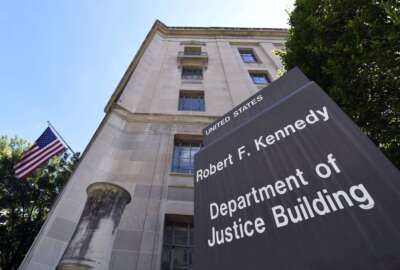In Depth interviews – August 14
On the In Depth show blog, you can listen to the interviews, find more information about the guests on the show each day and links to additional resources.
This is the In Depth show blog. Here you can listen to the interviews, find more information about the guests on the show each day and links to additional resources.
Today’s guests:
Don Kettl — Dean, School of Public Policy, University of Maryland

|
|
The number of federal jobs that require Senate confirmation has swelled significantly over the last few decades. During the Kennedy Administration, 850 political appointees had to be confirmed by the Senate. By the time President Obama took office, the number grew to 1,215.
In a rare recent show of bipartisanship, lawmakers decided before leaving for the August recess to reduce the Senate’s confirmation workload. The President signed a bill Friday removes the confirmation requirement for 170 executive branch jobs and 3,000 military officer positions. Don Kettl has studied and written extensively about governance and government organization. He explains why the change is needed and why the Congress should cut even more confirmations.
Read the law that eliminates hundreds of confirmations here.
Tom Shoop — Editor in Chief, Government Executive

|
|
Republican presidential nominee Mitt Romney has been pushing his business credentials on the campaign trail and ignoring his public service. But the attention lately has been centered around his pick for a running mate who wants to slash federal employees’ pay so they mirror private sector pay and even the size of the workforce. GovExec’s Tom Shoop tells In Depth that Romney and his vice presidential pick Paul Ryan may have a tough time running “Government Incorporated.”
Read Shoop’s most recent column: Romney, Vegas, Business and Government (GovExec)
Romney’s VP pick targeted fed pay, benefits (Related Story)
Catherine Lotrionte — Institute for Law, Science and Global Security Director, Georgetown University

|
|
The United States has some decisions to make if there’s a cyber attack on our nation’s critical infrastructure. If a group of rogue cyber terrorists in another country shuts down the electrical grid, do we have legal authority to enter the country and stop them? Catherine Lotrionte breaks down the legal quagmire U.S. officials face including deciphering the difference between a disruptive or a destructive attack. Should the military or law enforcement respond?
Obama may act to stop infrastructure cyberattacks (Related Story)
For first time in 20 years, NSA participates in Defcon hacker conference (Related Story)
Christopher Flavelle — Policy Analyst and Reporter, Bloomberg Government

|
|
Flavelle explains what a Romney-Ryan White House might mean for the federal budget beyond Medicare. Ryan has proposed freezing non-defense discretionary spending, which spread over 10 years would amount to significant cuts to education and the Federal Aviation Administration.
Read Flavelle’s full analysis: Evolution of Ryan Budgets Steers Fiscal Complexity: BGOV Insight (Subscription Required)
DoD, State cooperation vital, official says (Related Story)
Also on the show:
Flynn starts ‘dream job’ as new DIA director
Military looks to beef up meat buying
Copyright © 2024 Federal News Network. All rights reserved. This website is not intended for users located within the European Economic Area.





